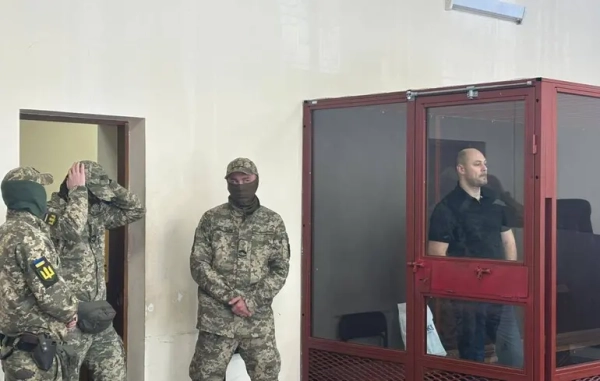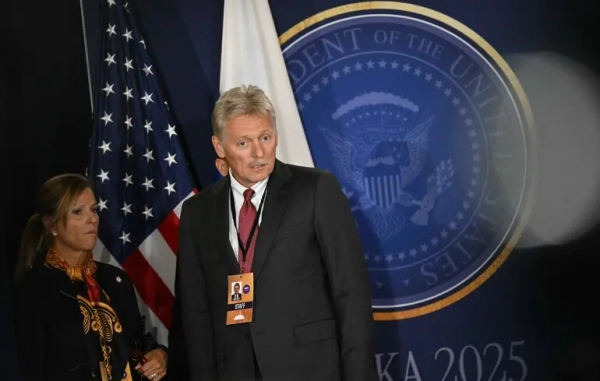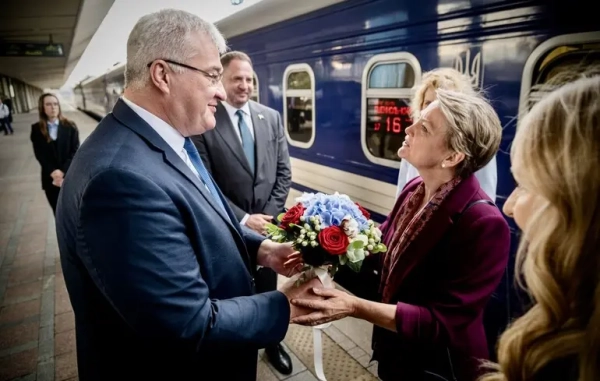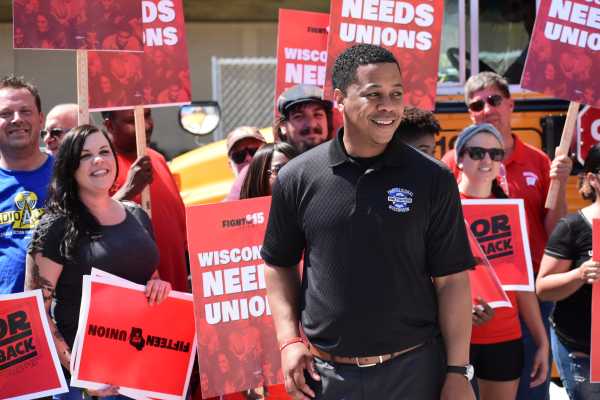
When voters in Wisconsin go to the polls for the state’s Democratic gubernatorial primary on August 14, Mahlon Mitchell, a career firefighter and union president, hopes to pull out a victory.
Mitchell, the only black candidate on the ballot, is competing in a crowded field against seven other Democrats for the nomination. In what promises to be a high-profile contest, the winner of the Tuesday primary is expected to face Republican Gov. Scott Walker as he campaigns for a third term in November. Walker has become known for his efforts to decimate unions, prompting Mitchell to campaign heavily on his union background and economic policy.
Mitchell has also ramped up his discussions of race as he’s made his pitch to voters. Earlier in August, one of his campaign ads called for ending “racism and division” as a crucial step for Wisconsin’s future. When he was endorsed by Collective PAC, which promotes black political candidates, he connected his campaign to that of the late Vel Phillips, the first African American and the first woman to serve as Wisconsin’s secretary of state, arguing that his victory would finally give African Americans in the state representation “at the highest level of government.”
As the Wisconsin primary comes to a close, Mitchell’s campaign has seen a late wave of national buzz, including an August 6 HuffPost article that exclaimed, “Democrats May Have Finally Found The Candidate To Take Down Scott Walker.” The candidate can even tout the endorsement of Sen. Kamala Harris (D-CA).
Barack Obama won the state both times he was on the ballot, but Wisconsin notably broke for Donald Trump in 2016. While Mitchell, a candidate for lieutenant governor in 2012, is considered one of the frontrunners for the Democratic nomination along with state schools Superintendent Tony Evers and former state Assembly member Kelda Roys, Vox’s Tara Golshan notes that all of the Democrats on the ballot have struggled to gain name recognition among voters. Polling in the primary has been limited, but the ones out there currently place Evers in the lead.
Mitchell is part of a group of black candidates — including Stacey Abrams in Georgia, Ben Jealous in Maryland, and Andrew Gillum in Florida — vying to make history as their states’ first black governors. “I actually think being African American helps me,” Mitchell told Vox. But, he adds, “I don’t just want to make history; I want to make it count by actually doing things that help people.”
He says that black communities in particular need help. Wisconsin is less than 7 percent black but struggles with high levels of black unemployment and incarceration. The state has been called the worst place in the nation for African Americans. “We can never solve or tackle the problem of racial injustice until we tackle the problem of economic justice,” Mitchell says.
I recently spoke with Mitchell about the union fight in Wisconsin, lessons from the 2016 election, and what role President Trump plays in the state contest.
Our conversation has been edited for length and clarity.
P.R. Lockhart
What are some of the issues you are prioritizing?
Mahlon Mitchell
We talk a lot about an economy that works for everybody. Right now, Gov. Walker talks about the unemployment rate being at 2.8 percent, and it’s a low rate, but it reduces the lives of Wisconsinites to statistics. You have people working two or three jobs just to make ends meet, and they’re going out for a fish fry on Friday and worrying about how to pay for it on Monday. The truth is we have a low-wage economy in our state. I’ve come out in favor of a $15 minimum wage, and that’s just a floor, because what you can get in some parts of the state with $15 an hour is not what you can get in other parts of the state.
I also want to look at health care. We have over 300,000 Wisconsinites who have no healthcare whatsoever. We can do better. My mother’s diabetic, and there’s going to be a time where she might have to choose between health care — getting her prescription drugs — and paying for her mortgage. There shouldn’t be a time where that happens or where we have children who can’t go to the hospital because their parents can’t afford it.
I also talk about education. I’m the product of public schools, my daughter is a sophomore in our UW system, and our greatest commodity for the future is our kids and their greatest currency is education. We need to do everything we can to shore up K-12 education.
And then there’s the African American male incarceration rate. It doesn’t escape me that I am raising two black children in the worst place statistically in the country to do so. We put more black men behind bars than any other state. We can never solve or tackle the problem of racial injustice until we tackle the problem of economic justice. I think we tackle all of these issues by working together. If we don’t do it together as both Republican and Democrats, then we won’t actually be successful.
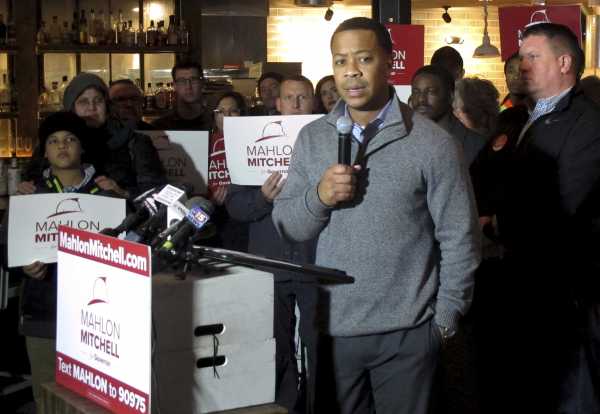
P.R. Lockhart
You have a union background, and the current governor, Scott Walker, has been strongly against unions during his term. There’s also been an ongoing national conversation about unions and their significance in the wake of the Supreme Court’s recent Janus decision. What do you think of the current state of unions both in Wisconsin and across the country?
Mahlon Mitchell
Scott Walker has been anti-union for a long time. What he did with Act 10 [a 2011 measure stripping collective bargaining rights for the majority of state and local employees] and right to work was try to cripple any political opposition he might have. Unions have helped prevent and helped stopped the imbalance of power that we are seeing in the country. They helped build the best middle class in the world, and we shouldn’t be afraid of that. Unions are people; union heads represent people.
They aren’t perfect by any means, but at the end of the day, it’s collectively us getting a seat at the table to talk about hours, wages, and working conditions. Without unions, we don’t have that, and that’s unfortunate. There’s a reason billionaires are spending millions of dollars to keep unions down. That’s because they don’t want working families and those making less than working-class wages to have a seat at the table.
P.R. Lockhart
You’re one of several black candidates across the country vying for governor this year. As a black candidate running in a place like Wisconsin, how do you view the potentially historic nature of your campaign?
Mahlon Mitchell
I’ve been black for 41 years, so there is no doubt that I certainly recognize that. Running for a statewide office in a place like Wisconsin, I get asked, “Is Wisconsin ready for a black governor?” a lot. And I would say that the answer to that question is yes.
When you look at it — and not to compare myself to Barack Obama by any stretch of the imagination — Obama won our state in 2008 by close to 14 points. And then four years later, even after all of the negative attacks, Obama won our state by 6 points. So the answer to the question of if Wisconsin will support black candidates is obviously yes.
I believe Wisconsin is ready for a black governor, but it’s going to require something uniquely different in order to beat Scott Walker. And that’s what really matters, this question of how we win. And I think it’s going to take a crossover candidate, one who is able to go to urban areas in our state and can also go to farms in Wisconsin and talk to people about a message that resonates with everybody.
I actually think being African American helps me, because if I’m on a debate stage with Scott Walker, before we even open our mouths, there’s already something there that’s different, there’s something there that’s unique. We always say that we can make history in the state, but I don’t just want to make history; I want to make it count by actually doing things that help people.
P.R. Lockhart
What are you doing to reach black voters in the state?
Mahlon Mitchell
Right now, candidates go around and go to black churches and organize black people to vote for Democrats. And they hope to win the election and then repeat that in three years. And that’s all that’s done. In between elections, as the governor’s actually legislating, no one’s helping communities of color. I go around and canvass and talk to people and they’ll tell me, “You come around, others come around, but no one actually gives a shit, Democrats or Republicans.”
Just looking at communities of color, communities that look like me, they’re sick of it. They’re tired of the same old rhetoric of “vote for me, I’m a Democrat.” We have a field office in Milwaukee where we are trying to mobilize black voters, and to do that, they need to see you and feel you and touch you and know that you’re about more than saying, “Vote for me, I’m a Democrat.” A lot of folks aren’t seeing changes no matter who they vote for.
P.R. Lockhart
You noted that Wisconsin went for Obama in both of his contests. And Wisconsin is a state that has been discussed a lot in the context of the 2016 election and how it contributed to Donald Trump’s victory. As a Democrat in Wisconsin right now, do you see the party being well positioned to win this contest?
Mahlon Mitchell
I think we have to learn our lessons from what happened in 2016. And that was that people want something different. Wisconsin is still a purple state. But people want something different, and something unique, and sometimes it’s a good type of different and sometimes it’s not. Barack Obama won our state twice, and then four years later, people voted for Donald Trump.
Wisconsin is fickle — we may have a red state government right now, but we’ve also been a blue state. This is a state that votes on the candidate, not party or party affiliation. It’s about what the candidate says and what it makes people feel in their gut. That’s what it’s going to take to beat Scott Walker.
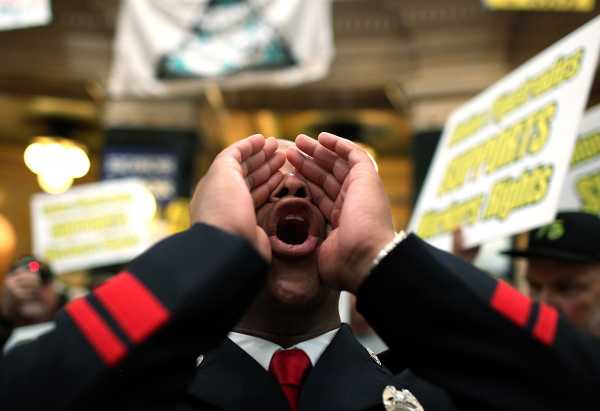
P.R. Lockhart
Earlier, you noted that you have two children, and that it isn’t lost on you that you raised them in the state that has been called the worst in the nation for black people. With that in mind, can you talk a bit more about your thoughts on the various racial disparities — things like incarceration, police violence, and higher unemployment — affecting black communities in the state?
Mahlon Mitchell
I think we actually need to address the issue, and that’s going to require Democrats and Republicans to actually speak with stakeholders and community leaders. We will never solve the school-to-prison pipeline, or solve the high incarceration rate, or other issues, until we address the core of the problems. And part of it is that there are no economic opportunities in the communities that need them.
When mom and dad are working two or three jobs to provide a living for their kids and they then send that child to school, to a teacher that has been underpaid and overworked, I think stuff like that shows how we end up with achievement gaps. And we could stay on the trajectory that we are on, but someone needs to get at the problem, the question of how we are allocating money and if we are prioritizing the right things. And I know throwing money at issues won’t solve them, but it helps. You can’t cut [funding] from public education and call that progress. You can’t have folks that don’t have health care and expect them to actually live.
Right now in Wisconsin, Foxconn is preparing to come into the state, and they were given $4.5 billion [this figure refers to the amount that tax credits given to Foxconn could cost the state over a 15-year period], but we can’t pay for people to have health care or make a decent wage or for our schools to be adequately staffed? We’re never going to solve racial injustice in our state until we talk about these issues.
P.R. Lockhart
We’ve been talking about Wisconsin and the issues affecting the state, particularly as it relates to race. But I also want to briefly talk about what’s happening at the national level and how the broader political climate is influencing the state. Looking at the kind of national attention that things like emboldened white supremacy and hate crimes have gotten, how is that playing out in Wisconsin?
Mahlon Mitchell
I think what we’ve been seeing with Donald Trump is that if you’re black, the answer is more police; if you’re Mexican, the answer is build a wall; if you’re Muslim, the answer is the travel ban. It is the politics of division, the politics of resentment. It preys on people’s fears and their lives not going so well. It creates an enemy.
In Wisconsin, it wasn’t necessarily racial — it was more about unions when Walker ran — but it was framed as, “If that union worker didn’t have great health care, then you would have better health care. If that worker didn’t have retirement security, then your 401(k)s would be better if they didn’t have a pension. If that worker didn’t have so much by way of wages, then we would have more money to fix our roads or put more money in schools.” It’s creating an enemy. In my opinion, stuff like that paved the way for Donald Trump.
Preying on people’s fears, unfortunately, works. And politics is cyclical, but I think we’re going in a dangerous direction where people are doing whatever it takes to win an election and to maintain absolute power. And it is dividing our state. And I think we need to bring people back together, bring all stakeholders back to the table, and make sure that we are doing all we can for everyone in the state and not just a select few. We need to wise up now, or else it will be too late.
Sourse: vox.com
